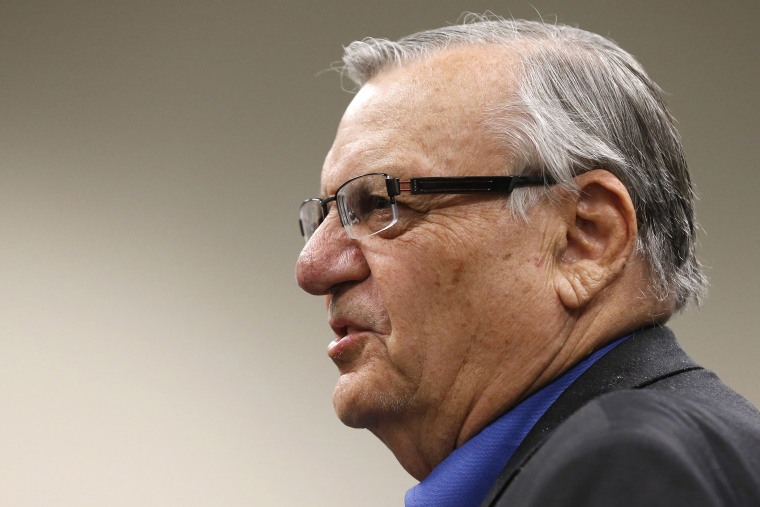Maricopa County Sheriff Joe Arpaio admitted under oath Thursday that his attorneys hired a private detective to investigate the wife of the federal judge who had ruled that Arpaio's office engaged in systematic racial profiling. It gets worse: That same judge is currently deciding whether to hold Arpaio in contempt of court for deliberately ignoring a 2011 court order.
RELATED: Arizona Sheriff Joe Arpaio faces contempt hearing
The bombshell dropped during the third day of Arpaio's contempt-of-court hearing when U.S. District Judge G. Murray Snow took a break from delving into the potential consequences for Arpaio's decision to defy court orders to no longer target Latinos during patrols. Instead of the hearing being all business, things turned personal.
“Are you aware that I've been investigated by anyone?” Snow asked.
Snow did not flinch when Arpaio confirmed his suspicions, according to the Arizona Republic newspaper. Arpaio said a tipster had sent an email claiming that Snow's wife had commented on how her husband did not want to see the sheriff re-elected in 2012. Arpaio said he believed his former attorney hired a private investigator to dig for details.
“We weren't investigating you,” Arpaio told Snow. “We were investigating some comments that came to our attention.”
This wasn't the first time that Arpaio has been accused of using his position of power to make similar inquiries into his opponents. Two elected county supervisors and a judge who allegedly feuded with Arpaio's office were among those investigated by the sheriff's office and charged with crimes. Those charges later crumbled. The U.S. Department of Justice later launched a criminal abuse-of-power investigation probing the investigative work done by the sheriff's office's detectives. The investigation was closed, with no federal charges filed.
Dispatches from the courtroom by the AP paint a picture of Arpaio as curt and soft-spoken, answering a number of questions with a terse "I don't recall," while shying away from the bravado that had become his trademark. His publicly brash persona was under scrutiny during the hearing as opposing attorneys sought to use Arpaio's media interviews against him to show the sheriff was not just brazenly defying court orders, but bragging about it on television.
Judge Snow had issued a preliminary injunction in 2011, barring Arpaio's department from targeting Latinos during routine traffic stops and ordering deputies to discontinue the policy of holding individuals in detention for extended periods. Latino motorists first brought a class action lawsuit against Arpaio's office after arguing they were discriminated against by deputies who pulled them over based on their race and suspected immigration status. In 2013, Snow ruled that there was widespread racial profiling in the Maricopa County Sheriff's Department, and that deputies routinely violated individuals' constitutional rights.
RELATED: Appeal date set on Sheriff Joe Arpaio's immigration lawsuit
Arpaio has previously acknowledged that for 18 months, he and his top deputy ignored the court's order to discontinue the department's anti-undocumented immigrant patrol policy. The act of defiance triggered this week's contempt of court hearing, buoyed by video that surfaced showing top department officials -- including Arpaio -- disparaging the injunction.
During his second day on the stand Thursday, Arpaio apologized for violating the court's orders. If held in contempt, Arpaio, 72, could face fines and potentially a criminal case down the road.
“I have a deep respect for the courts,” Arpaio said, according to the AP. “It really hurts me after 55 years to be in this position. I want to apologize to the judge. I should have known more about these court orders that slipped through the cracks.”
